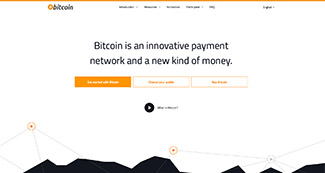
Blockchain technology was developed in 2009 by an individual or group known as Satoshi Nakamoto. The Bitcoin netowork was the technology used to power BTC, the first cryptocurrency to ever exist.
Since then, various companies, governments, and other institutions have explored different applications of the technology. In this article, Crypto Lists will look at some of the real-world use cases of blockchain technology.
Payments
Bitcoin was created in 2009 and was primarily meant to be a way for people to send money over the internet. Since then, lots of cryptocurrencies have been developed, and each one has its pros and cons. Depending on the blockchain you use, the transfers can be extremely fast and cheap.
Lots of people are already using blockchain-based systems for everyday transactions, and it’s also becoming popular for remittances. Its growing use for remittances is primarily because of the cost and speed of the transfers. It also doesn’t require a bank account, and this makes it easier to use in developing countries.
Because of this same reason, it’s likely that blockchain technology will make financial services more accessible to people who are unbanked or underbanked.
Supply: 18,925,000 / 21,000,000
Release date: January 3, 2009
Description: Buy Bitcoin and revolutionise global finance!
Risk warning: Trading, buying or selling crypto currencies is extremely risky and not for everyone. Do not risk money that you could not afford to loose.
Cybersecurity
Cybersecurity has been a major issue over the past few years. Companies have lost a lot of money and useful information to hackers, and this has made it necessary for professionals to adopt a new approach to cybersecurity. Blockchain technology is proving to be one of the best ways of improving cybersecurity. Its main advantage is its use of a distributed ledger.
This system reduces many risks associated with centrally stored data, and it makes the system harder to attack or compromise. Blockchain also uses a collaborative consensus algorithm, which helps to watch out for anomalies and malicious actions.
Healthcare
Blockchain technology is also being applied in the healthcare sector. It can be used to preserve and exchange patient data through hospitals and other players in the healthcare sector. This technology can easily identify serious mistakes in the medical field.
The tech is also being used to store and share details from clinical trials, and this makes it easier to track the progress of the trial and ensure the integrity of the data.
Supply Chain Management
Blockchain technology can be used in supply chain management to improve transparency and efficiency. The technology can create tamper-proof records of all transactions in the supply chain, and that makes it easier to trace the movement of goods to the consumer.
In other words, it enhances traceability. Blockchain also enhances transparency as it enables all parties to have a clear and verifiable overview of the transactions.
Smart contracts are also being used to automate straightforward processes like invoicing and the issuing of purchase orders. This helps to increase the efficiency of the supply chain and makes it unnecessary to have intermediaries.
It’s also worth noting that blockchain helps with inventory management. It’s used to track and manage inventory levels and will offer insight into the real-time demand and supply of various products.
Government
Governments are also exploring the use of blockchain technology to improve transparency, security, and efficiency in various operations. It can be used to create secure and decentralized digital identities for citizens, and this makes it easier for individuals to access government services.
It’s also being used to create immutable and tamper-proof records of land and property ownership. State bodies are also using blockchain technology to create transparent and secure voting systems. Using this system will lower the risk of voter fraud, and individuals will be able to verify the integrity of elections easily.
Another application of blockchain in government is in public record keeping. Governments can use it to store and share public records like birth certificates, criminal records, and marriage certificates. Using blockchain for public record keeping makes the documents easier to access and makes it impossible for hackers to tamper with the records.
Dubai has been integrating blockchain technology into its government and aims at becoming the world’s first blockchain-powered government. The state is projected to save 5.5 billion dirhams annually in document processing alone.
Conclusion
Blockchain technology has many real-world use cases. The tech been integrated into the global payment system, cybersecurity, healthcare, supply chain management, and government. Since the technology is still relatively new, professionals are still finding ways of using it in different sectors. It’s highly likely that blockchain technology will revolutionize many sectors.





 Bitcoin breaches 100k USD barrier - to the moon?
Bitcoin breaches 100k USD barrier - to the moon? Transfer BTC faster than ever on Bet Panda casino
Transfer BTC faster than ever on Bet Panda casino Start off your Monday with a 1 BTC bonus at Cryptorino
Start off your Monday with a 1 BTC bonus at Cryptorino Two no-KYC casinos with bountiful BTC bonuses!
Two no-KYC casinos with bountiful BTC bonuses! Four stage 100 mBTC bonus on Power Up casino
Four stage 100 mBTC bonus on Power Up casino
























